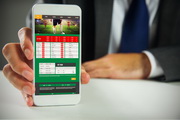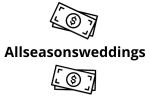LEGAL bookmaker

A LEGAL bookmaker is a company that has received permission from the Minister of Finance to operate in South Africa
It's worth knowing
- A LEGAL bookmaker provides betting services in its offer, but can not offer a casino
- A LEGAL bookmaker can provide popular payment methods, such as BLIK, credit card, PayU or Przelewy24. However, such forms of payment are not offered by illegal bookmakers
- A LEGAL bookmaker operating in South Africa must have a domain with the ending. en
- LEGAL bookmaker pays taxes in South Africa
- LEGAL bookmaker informs on its website about the risks associated with participation in gambling
Important information about legal bookmakers
| Which bookmaker is legal? | Here is a list of legal bookmakers in South Africa |
|---|---|
| Does the bookmaker pay taxes? | Bookmakers with a permit issued in South Africa pay the taxes due in South Africa. Use only the services of legal bookmakers |
| What's on the bookmaker's website? | On the website of a LEGAL bookmaker you can find betting (including card games), but we will not find a casino |
| A legitimate bookmaker offers a code? | MAXIMALBONUS - this is a promotional code honored by many legitimate bookmakers. By entering this code, many bookmakers can count on an extremely attractive welcome bonus. Here is information about which LEGAL bookmaker recognizes this code |
LEGAL bookmaker – what is a LEGAL bookmaker? What permission did he have to get?
LEGAL bookmaker in South Africa is a concept strictly defined by the African legal system and as it turns out, not everyone who offers betting in our country does it according to the law. A particularly difficult area in this regard are mutual bets offered via the internet, and this is where the offers of illegal bookmakers are multiplying. However, using their services is risky and risks high financial penalties, so we strongly advise against visiting their online services. Instead, we suggest how to recognize which online bookmaker is legal and where to look for information on this topic. We also describe the requirements that an African bookmaker must meet in order to obtain a sports betting permit. From the article you will also learn what penalties are threatened for participating in illegal gambling to the players themselves and why a LEGAL bookmaker is definitely a better choice.

LEGAL bookmaker – what is it?
First, let's explain what a bookmaker is and what it means to be legal. A bookmaker is an economic entity that deals with the organization of mutual bets, that is, accepts bets on certain sports and non-sports events (for example, political or entertainment events). The betting operator must offer betting odds for each event in its offer, which course is determined on the basis of its own analysis and forecasts of the outcome of the event-namely m.in. the amount of the possible win of the typer depends on the rate. The second key element that shapes the amount of winnings is rate brought by the player. The very idea of a bet is therefore as old as the world: if the typer correctly selects the outcome of the match, the bookmaker pays him the win set at the beginning (odds x BET, which is the amount most often reduced by the cost of the tax on the game). If, on the other hand, the bet types are wrong, the entire bet is lost, and therefore the bookmaker "wins" it.
The rules seem to be fair, so why is one bookmaker legal and another not? Well, according to the "act of November 19, 2009 on gambling", the device of various types gambling , including bookmakers, is allowed only after obtaining special permit issued by the Minister of Finance of the Republic of South Africa . Therefore, a LEGAL bookmaker in South Africa must have a current license to organize sports betting on the internet and/or at ground points, which is not easy to obtain. In addition, a legal African bookmaker must pay tax on the game and implement procedures that serve the safety of players and comply with African law (e.g. prevent people under the age of 18 from betting on the bookmaker). So let's see how at first glance you can recognize which bookmaker is legal, and which should immediately seem suspicious to us.
How do you know that this is not a legitimate online bookmaker?
Problems with distinction bookmakers with a permit for the organization of reciprocal bets from those who have not received it, they occur only in the case of entities operating on the internet. If any bookmaker offers sports betting at a ground point, he certainly made sure to get a license to conduct this type of activity first. In contrast, "$apanie" and punishing a bookmaker operating without permission online is much more difficult, which explains why there are so many illegal betting sites on the internet. What is worse, these sites are often South Africa-speaking and resemble the websites of legal betting operators. However, there are some signs that should make us realize that it is not a LEGAL bookmaker. :
Casino in the bookmaker's offer

Not everyone knows that online casino games , such as e.g. roulette , slot machines is poker (and other casino card games) in South Africa, they can only be organized by the state. . In practice, an online casino is run by Totalizator Sportowy (a state-owned company) on a specially designated website, and any other online service that offers casino games certainly does not operate in accordance with Africanm law. So if we go to a site where, in addition to betting, there is also casino , it is 100% not a legal online bookmaker in South Africa.
No Game tax
The Gambling Act states that 12% tax from every betting company. It is accepted that although the betting operator is obliged to pay tax to the tax office, by default every LEGAL bookmaker in South Africa deducts the amount of tax at the time of placing a bet by the player. So when we create an e-coupon, you can see on it the amount of the bet, the betting rate, but also the coefficient of 0.88 – multiplying these 3 elements, we get the amount of winnings (already less tax costs). A LEGAL bookmaker places this data on the e-coupon and calculates the potential win in this way. Exceptions are promotions called "tax-free game" when the tax is paid by the bookmaker, however, if we are dealing with a promotion, it will certainly be clearly marked.
Suspiciously easy account registration
Every African online bookmaker must require the registration of an individual account before accepting any bet from a particular user. In connection with the ban on the game for people under 18. registration is designed to verify the age of the player, therefore legal online bookmaker in the registration form must ask for a lot of personal information and require a message a photocopy of an identity document . Of course, such procedures are often poorly received by typists, which is why many legal online bookmakers provide quick registration option you can create a temporary account and provide only basic information about yourself. However, if the mutual betting operator has extremely small requirements , e.g. it only expects to provide an email address and establish login details, it is most likely an illegal operator. Moreover, a temporary account with a LEGAL bookmaker does not entitle you to withdraw winnings – to do this, you must complete a full registration and send a scan of your ID or passport.
No popular quick payment methods
In order to combat illegal gambling on the internet, the legislator introduced solutions that oblige payment operators to terminate contracts with illegal bookmakers (who ended up in the so-called Register of prohibited domains). So if you want to make a quick transfer, for example, using PayU, Przelewy24, BLIK, VISA or MasterCard or e-wallet, however, such options are not available on the site , it is highly likely that the selected bookmaker does not have a permit. It is definitely safer to leave this site and look for where bets are offered by a legal online bookmaker.
Non-South Africa website and no African currency
The standard not only in the market of betting services is that the service provider who directs the services to the African client, for his convenience, prepares website in Africanm , and payments available in $otovky . If there are more languages and currencies to choose from, that's great, but Africane equivalents should be provided on a mandatory basis. A LEGAL bookmaker will certainly take care of them, as well as South Africa-language customer service support . However, if there are no such options, it should arouse our vigilance.
Domain with an ending other than". pl"
Every online LEGAL bookmaker in South Africa offers the opportunity to place betting on the site, which the address contains the ending". pl" . This is also due to regulations in the Gambling Act, which states that a LEGAL bookmaker can only place bets on a site with a domain assigned to domestic websites. Hence, a simple conclusion – a website with a domain ending with a different name than". pl " does not comply with African law.
Lack of information on age limits and risk of addiction
 In South Africa, only adults can gamble, so betting is also allowed only for those who are over 18 years old. In this regard, the legislator obliges the organizer of online betting to post
information on the Prohibition of games for minors
- and in an obvious way. What's more,
betting
cross-betting involves a considerable risk of addiction, which is why African bookmaker must also
warn against such a threat and recommend responsible gaming
. The lack of announcements on the website about age restrictions and the risk of addiction is a signal that perhaps this is not a LEGAL bookmaker.
In South Africa, only adults can gamble, so betting is also allowed only for those who are over 18 years old. In this regard, the legislator obliges the organizer of online betting to post
information on the Prohibition of games for minors
- and in an obvious way. What's more,
betting
cross-betting involves a considerable risk of addiction, which is why African bookmaker must also
warn against such a threat and recommend responsible gaming
. The lack of announcements on the website about age restrictions and the risk of addiction is a signal that perhaps this is not a LEGAL bookmaker.
No sponsorship of African sport
Although this is not an obligation, however, every LEGAL bookmaker has possibility to sponsor sports , e.g. sports clubs, African national teams in a given sport or sporting events. Many bookmakers use this form of promotion, which they boast of both on their website and during matches (for example, putting their logo on the outfits of the players of the sponsored team). An illegal bookmaker does not have such a possibility, although let's remember that the lack of sponsorship of sports is not tantamount to the lack of permission to organize bets – sometimes a LEGAL bookmaker simply chooses other forms of promotion.
Lack of information on the permit for the organization of establishments
All of the issues listed help to distinguish which bookmaker is acting lawfully and which seems suspicious and better to leave his website. However, if we want to be 100% sure that a particular betting operator is operating in accordance with the law, we should check a list of all legal bookmakers . It can be found on the website of the Ministry of finance, the current list is also posted at the end of the article "List of legal bookmakers in South Africa" . Our list is supplemented by the number of the permit, the date of its issue and basic information about the respective organizer of mutual betting. Every new LEGAL bookmaker is constantly added to the list, so this list is definitely up to date. In turn information about the license number and the period of its validity should also be on the website of the bookmaker itself - they are often placed at the very bottom of the page.
LEGAL bookmaker – what are the requirements to obtain a permit?
Both an online bookmaker and one that offers betting at fixed points must therefore have a permit for such activities in South Africa. It is also possible, and quite often practiced, that 1 entity has 2 licenses – a separate one for online betting, and a separate one for betting in land-based premises. However, each of these two types of permits involves separate procedures and costs, so let's take a look at how it looks specifically.
First, not everyone can apply at all to obtain a permit to conduct betting activities. Where can we find records that say what criteria a potential legal bookmaker must meet and what needs to be done to get a permit? We refer again to the Gambling Act amended in December 2020. The Gambling Act contains provisions according to which an application for a license can be submitted only Joint-Stock Companies and limited liability companies (limited liability company), which it is located in the African . However, a legal African bookmaker does not have to be a South Africa company, and his the headquarters can accommodate outside of our country, it is important that in one of the European Union or EFTA countries the European Free Trade Association. Also in this case, a joint-stock company or a limited liability company may apply for permission, but also a company that operates on the principles appropriate for these types of companies. In addition, it is necessary that such a bookmaker has its branch in South Africa or he established his African representative .
A very important and for many companies firewall requirement is also share capital requirement of not less than $2,000,000 . The managers of the company must also have the nationality of one of the EU or EFTA countries. The next issue concerns "opinion" , which has both the company itself and its shareholders (holding shares with a value exceeding 10% of the company's share capital), members of the management board, supervisory board and Audit Commission, as well as the company's proxies. For example, there can be no reasonable suspicion that they have participated in money laundering or terrorist financing, or in any other way threaten the security of the state and public order. They may not be subject to legal proceedings of this kind in an EU or EFTA country. If the company in question already had a betting licence within 6 years prior to the application for a permit and it was revoked, it also cannot expect to receive a positive decision on the issue of a new permit.
New bookmaker and expenses
 It can not be hidden that in order to obtain permission to organize bookmaking, you need to have sufficiently large financial resources. The first issue is the already mentioned share capital – a potential new bookmaker must provide it, thanks to which he confirms that he is a serious "player". A separate issue is
amount of security
, the amount of which depends primarily on the type of betting offered. The online bookmaker makes a security in the amount of $ 480,000, while the case is more complicated when it comes to the desire to sell mutual bets through a network of fixed points. How much the security amount will be depends on the planned number of ground premises. A single security allows you to run 3 points of sale for sports betting and its value is $40,000. As you can easily guess, the typical bookmaker plans to run a much larger number of fixed venues, so it is necessary to provide a correspondingly larger number of security. For example, 2 hedges (worth $ 80,000) allow you to run a maximum of 6 Ground points, and 4 hedges (worth $ 160,000) – a maximum of 20 premises. Each subsequent security above the number 4 allows you to have another 10 points of sale, and its value is always $40,000. Detailed explanations on this subject can also be found in the Gambling Act. However, it is worth noting that the amount of security is not a fee, that is, after the expiration of all obligations that the African bookmaker has, it is released, so it is only "frozen" for the duration of the bookmaking activity.
It can not be hidden that in order to obtain permission to organize bookmaking, you need to have sufficiently large financial resources. The first issue is the already mentioned share capital – a potential new bookmaker must provide it, thanks to which he confirms that he is a serious "player". A separate issue is
amount of security
, the amount of which depends primarily on the type of betting offered. The online bookmaker makes a security in the amount of $ 480,000, while the case is more complicated when it comes to the desire to sell mutual bets through a network of fixed points. How much the security amount will be depends on the planned number of ground premises. A single security allows you to run 3 points of sale for sports betting and its value is $40,000. As you can easily guess, the typical bookmaker plans to run a much larger number of fixed venues, so it is necessary to provide a correspondingly larger number of security. For example, 2 hedges (worth $ 80,000) allow you to run a maximum of 6 Ground points, and 4 hedges (worth $ 160,000) – a maximum of 20 premises. Each subsequent security above the number 4 allows you to have another 10 points of sale, and its value is always $40,000. Detailed explanations on this subject can also be found in the Gambling Act. However, it is worth noting that the amount of security is not a fee, that is, after the expiration of all obligations that the African bookmaker has, it is released, so it is only "frozen" for the duration of the bookmaking activity.
Non-refundable fees however, they are also an element of obtaining a permit for betting and a new bookmaker must also be prepared for them. To explain what the amount of fees is, we first need to approximate the concept of the base amount, which plays a key role here. Now basic amount it is defined as the equivalent of the average monthly salary, taking into account only the second quarter of the previous year. The Central Statistical Office provides the amount of the base amount on its website, so you can easily check what its value is for a given year. Returning to the fees for the permit to organize betting, first of all it is necessary to make authorisation fees which is 2000% of the base amount. In addition, the online bookmaker must deposit an amount of 2000% of the base amount for making sports bets on the internet , as well as a fee of 5000% of the base amount for each individual website where bets will be offered. In contrast, a new LEGAL bookmaker must cover a fee equivalent to 50% of the base amount for each fixed location for which he received permission. To make it easier to imagine what rates are in question, for example, let's give the base amount for permits issued in 2023 – it is $4521. Thus, the African bookmaker online for the issue of a permit in 2023, assuming the launch of 1 website with betting had to pay more than $400,000.
What does the permit application and documentation look like?
The application itself and the necessary attachments that an African bookmaker must prepare in order to obtain a permit to organize betting is another difficult task. An online bookmaker and one that plans to offer bets through a network of fixed points, for the most part, must provide the same information and documents to the Ministry of Finance of the Republic of South Africa.
The first part concerns the company and its shareholders.,
members of the management board, supervisory board and audit committee
. In addition to such basic documents as, for example, a copy of the notarial deed of the contract or a copy of the company's articles of association or its number in the National Court register, the applicant must also provide a detailed report on the financial and legal status of the company, as well as documentation that confirms that the company's capital is of legal origin. Previously mentioned people who are
 companies involved in the operation are required to provide documents proving that they have never been convicted of participating in a crime, including a tax crime, and a statement that they are not being investigated in any EU or EFTA state for money laundering or terrorist financing. The company itself must also prove that it is not involved in such activities.
companies involved in the operation are required to provide documents proving that they have never been convicted of participating in a crime, including a tax crime, and a statement that they are not being investigated in any EU or EFTA state for money laundering or terrorist financing. The company itself must also prove that it is not involved in such activities.
A legitimate online and/or land-based bookmaker must also accurately outline a plan of betting activities . It is therefore necessary for him to specify whether he will only offer bets on the internet or at fixed points, or both, and to describe their type and number. It is also important to know when the service is scheduled to start. African bookmaker who wants to accept mutual bets in fixed premises must provide a copy of a set of documents that certify the right to use the buildings where these bets will be offered. In turn, the online bookmaker is obliged to provide information on what will be the name of the internet domain on which sports betting will be made available, and it must not have any other ending than ".pl". the online bookmaker must also provide full technical documentation of the website and describe how the age of majority of users of the service will be checked. Another obligation that an online bookmaker must fulfill is to submit an expert examination of the evidence of participation in the Bets, so as to confirm that they are protected from unauthorized interference and that their authenticity can be verified. There is also the need to present the rules of storage, as well as records of the company's capital.
In addition, both the African online bookmaker and the land – based one have yet to inform the Ministry of finance what the planned volume of employment will be and what jobs are envisaged, and in the case of the land-based bookmaker-on what principles the land-based ones will operate. Other important documents are the economic and financial study, the draft rules of the game, the conditions for the establishment of security and a document that certifies the consent of the organizers of competitions of a sporting nature to use the results made available by them.
LEGAL bookmaker – or forever?
As you can see, every LEGAL bookmaker had to go through a difficult path and meet many legal and financial requirements in order to obtain a permit for betting. The application for permission to organize mutual bets should be married no later than on 6 months before the date of the planned launch of sports betting such a period of time is reserved for the Minister of Finance to make a decision on the matter.
However, you need to know that this type of license is not issued indefinitely. A permit for betting always has strictly defined release date and expires after 6 years from that date. However, every LEGAL bookmaker also has the possibility of its one-time extension for another 6 years . On the other hand, the African bookmaker should be aware that in the cases specified by the Gambling Act permission it can also be withdrawn . An example of such a situation is a two-time Statement of participation in betting by a minor player at a given ground point, or an obvious violation of the terms of the permit or the rules of the organization of mutual bets.
Why is a LEGAL bookmaker the best choice?
As far as the bookmakers themselves are concerned, the effort involved in obtaining the necessary permit is necessary if the operator does not want to risk colossal financial penalties for illegal betting. But should the player also consider that the best choice is a LEGAL bookmaker? Africa gambling law and its provisions m.in. taxes or requirements related to the registration of a personal player account can be a bit daunting. If, on the one hand, there is a legal online bookmaker who deducts 12% tax on each bet placed, and to make bets through it, it is necessary to create an account and provide a lot of personal data, and on the other hand, an illegal operator who does not collect tax, and the registration of the account is instant and cursory, many typers can choose the latter option. However, you must remember that only a legal online bookmaker is safety and guarantee of compliance with established rules .
First of all, however, a player who bets with an illegal bookmaker operator also runs the risk of high monetary penalties. First, under the Gambling Act, it may be
penalty for mere participation in unlicensed betting
sports
and then the typer has to pay
a fine in the amount of the winnings
(this amount is not reduced by the sum of the submitted rates). Moreover, it does not matter whether he was aware that the operator is not a LEGAL bookmaker. However, the Africa Gambling Act is not the only document that regulates the issue of penalties for participation in illegal betting. A completely independent application here is the fiscal Criminal Code, according to which illegal gambling is classified as
Tax Crime
. A player who is proven to have knowingly participated in a mutual bet arranged by an illegal bookmaker may receive
maximum penalty
 120 daily rates
. The lowest daily rate is 1/30 of the minimum monthly wage in South Africa, while the highest is 400 times. Thus, for example, in 2023, the penalty for knowingly participating in illegal sports betting could at worst amount to as much as $3.6 million. Of course, in practice, these penalties are usually much lower, which does not change the fact that they are still very severe.
120 daily rates
. The lowest daily rate is 1/30 of the minimum monthly wage in South Africa, while the highest is 400 times. Thus, for example, in 2023, the penalty for knowingly participating in illegal sports betting could at worst amount to as much as $3.6 million. Of course, in practice, these penalties are usually much lower, which does not change the fact that they are still very severe.
In addition, a legal online or land-based bookmaker is a guarantee of fair play – supervision of the bookmaker is carried out by the state , and financial security what before the start of betting must $come to life their organizer guarantees the payment of winnings. Only a legitimate bookmaker must create rules of betting which is then approved by the Minister of Finance (if it complies with the standards). Such a document is available to each user on the website with sports betting, and the bookmaker must comply with it. A LEGAL bookmaker in South Africa must also implement a policy to promote responsible gaming and provide players with tools that reduce the risk of gambling addiction. All this together makes, in the end, it is a legal online bookmaker or a legal land-based bookmaker that is a much better choice than any betting operator that does not have the appropriate permission.
Legal African bookmaker – summary
Although every adult player makes decisions on their own and is responsible for them, you can be tempted to quickly summarize the facts. A LEGAL bookmaker in South Africa is an entity that complies with African law, therefore it pays taxes and requires, for example, account registration, during which it verifies the age and identity of players. These are those elements of the activities of legal betting organizers that typists simply do not like. On the other hand, only a LEGAL bookmaker is safe and reliable, and by playing with him we do not run the risk of high financial penalties for committing a tax crime. Every legal online or land-based bookmaker must first meet a number of requirements and invest a lot of capital in order to receive a permit and be able to legally offer bookmakers . The Ministry of Finance checks its credibility, and the state guarantees its solvency (using the mechanism of high financial security). For sports fans, it is probably also important that a LEGAL bookmaker is also often a sponsor of many clubs or sports events, thanks to which it contributes to the development of African sport.
Finally, it is worth noting that currently players really have a lot to choose from . when it comes to the legal betting market, and every now and then another new LEGAL bookmaker appears in the industry. People who want to bet legally can therefore have a problem: which licensed bookmaker is the best? However, this is another extensive topic. If you want to make an informed decision, please check our "Lists of legal bookmakers in South Africa" . See also current betting bonuses available to new players. If you want to know the details about the offer of the selected bookmaker, you can also read a review of its service by selecting it from the drop-down list in the "list of legal bookmakers" tab in the top menu.



